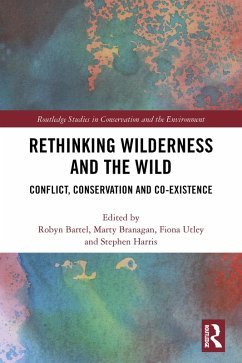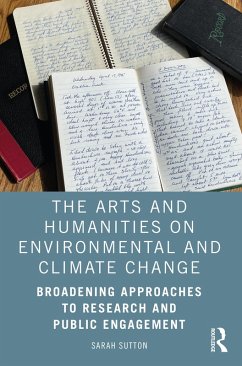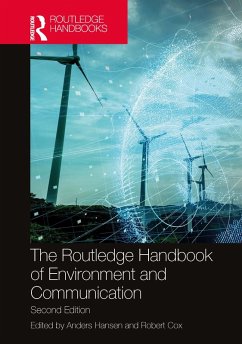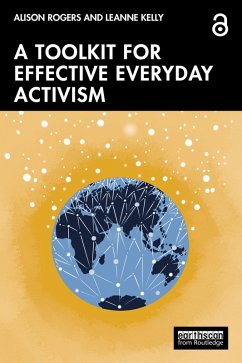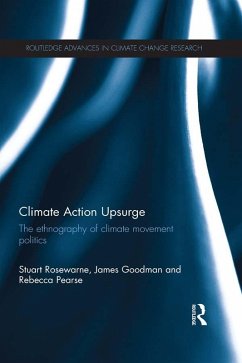
Learning to Live with Climate Change (eBook, PDF)
From Anxiety to Transformation
Versandkostenfrei!
Sofort per Download lieferbar
0,00 €
inkl. MwSt.
Weitere Ausgaben:

PAYBACK Punkte
0 °P sammeln!
This imaginative and empowering book explores the ways that our emotions entangle us with climate change and offers strategies for engaging with climate anxiety that can contribute to social transformation.Climate educator Blanche Verlie draws on feminist, more-than-human and affect theories to argue that people in high-carbon societies need to learn to 'live-with' climate change: to appreciate that human lives are interconnected with the climate, and to cultivate the emotional capacities needed to respond to the climate crisis. Learning to Live with Climate Change explores the cultural, inter...
This imaginative and empowering book explores the ways that our emotions entangle us with climate change and offers strategies for engaging with climate anxiety that can contribute to social transformation.
Climate educator Blanche Verlie draws on feminist, more-than-human and affect theories to argue that people in high-carbon societies need to learn to 'live-with' climate change: to appreciate that human lives are interconnected with the climate, and to cultivate the emotional capacities needed to respond to the climate crisis. Learning to Live with Climate Change explores the cultural, interpersonal and sociological dimensions of ecological distress. The book engages with Australia's 2019/2020 'Black Summer' of bushfires and smoke, undergraduate students' experiences of climate change, and contemporary activist movements such as the youth strikes for climate. Verlie outlines how we can collectively attune to, live with, and respond to the unsettling realities of climate collapse while counteracting domineering ideals of 'climate control.'
This impressive and timely work is both deeply philosophical and immediately practical. Its accessible style and real-world relevance ensure it will be valued by those researching, studying and working in diverse fields such as sustainability education, climate communication, human geography, cultural studies, environmental sociology and eco-psychology, as well as the broader public.
The Open Access version of this book, available at https://doi.org/10.4324/9780367441265, has been made available under a Creative Commons Attribution-Non Commercial-No Derivatives 4.0 license.
Climate educator Blanche Verlie draws on feminist, more-than-human and affect theories to argue that people in high-carbon societies need to learn to 'live-with' climate change: to appreciate that human lives are interconnected with the climate, and to cultivate the emotional capacities needed to respond to the climate crisis. Learning to Live with Climate Change explores the cultural, interpersonal and sociological dimensions of ecological distress. The book engages with Australia's 2019/2020 'Black Summer' of bushfires and smoke, undergraduate students' experiences of climate change, and contemporary activist movements such as the youth strikes for climate. Verlie outlines how we can collectively attune to, live with, and respond to the unsettling realities of climate collapse while counteracting domineering ideals of 'climate control.'
This impressive and timely work is both deeply philosophical and immediately practical. Its accessible style and real-world relevance ensure it will be valued by those researching, studying and working in diverse fields such as sustainability education, climate communication, human geography, cultural studies, environmental sociology and eco-psychology, as well as the broader public.
The Open Access version of this book, available at https://doi.org/10.4324/9780367441265, has been made available under a Creative Commons Attribution-Non Commercial-No Derivatives 4.0 license.
Dieser Download kann aus rechtlichen Gründen nur mit Rechnungsadresse in A, B, BG, CY, CZ, D, DK, EW, E, FIN, F, GR, HR, H, IRL, I, LT, L, LR, M, NL, PL, P, R, S, SLO, SK ausgeliefert werden.






